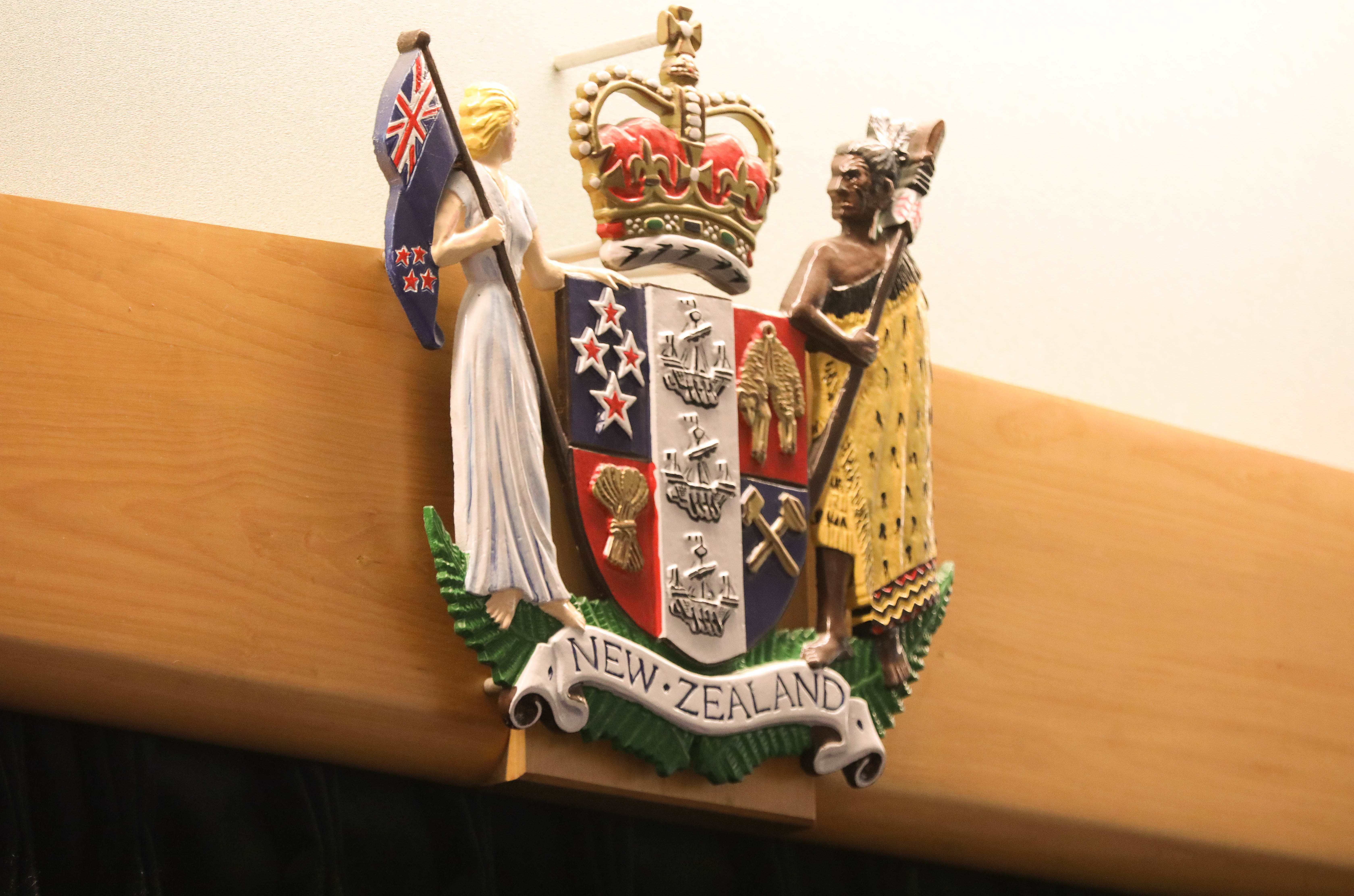The Chief Justice says the Covid-19 pandemic has disrupted court business in a way not even seen during world wars.

Photo: RNZ / Patrice Allen
In a rare move, the country's top judges convened a partially-virtual meeting with journalists in the High Court at Auckland today to speak about how courts are running during the Covid-19 pandemic.
Courts are still hearing priority proceedings during the lockdown which include matters of individual liberty, family violence and cases where a defendant is being held in custody.
Jury trials, which by nature a gathering of twelve jurors, have been adjourned until the end of May, delaying almost 60 trial sitting weeks in the High Court alone.
See all RNZ coverage of Covid-19
Justice Winkelmann said the coronavirus outbreak had caused unparalleled disruption to the courts not even seen during world wars.
"I don't believe that the courts have ever been disrupted in this way; they weren't disrupted in this way through world wars and of course life is far more complex now than it was in the past."
"This disruption really does hit hard and we fully appreciate it doesn't just hit hard on judges, court staff and lawyers, it hits hard on those people whose cases or cases in which they're involved are delayed or adjourned."
She said the judiciary was acutely aware of the human toll in adjourning cases during the pandemic.
"Judges deal with cases all the time and see the extent of the emotional engagement and cost of a court hearing and of a sentencing.
"We know full well that there is a human cost to the adjournments that have taken place and if we could avoid it, we would avoid it."

Chief Justice Helen Winkelmann. Photo: Supplied
It's estimated 60,000 cases will be adjourned at the District Court level as a result of the Covid-19 lockdown period.
Chief District Court Judge Heemi Taumaunu said he was committed to getting cases back on track as soon as possible.
"It's going to need a lot of work on our part to work with the Ministry to come up with creative solutions to try and do that but there's a real commitment on our part to address this because it's not really a backlog it's about people being affected by what's occurred with Covid-19."
Justice Winkelmann said courts, a paper-driven, face to face operation by nature, had digitised essential court business in little more than a month, but was clear to say the current measures were temporary.
"At the end of the Covid-19 emergency we will go back to predominantly face to face justice conducted in courthouses around New Zealand. Those courthouses serve an important role as the local face of justice for their communities."
Read more about the Covid-19 coronavirus:
- See all RNZ Covid-19 news
- A timeline: How the coronavirus started, spread and stalled life in New Zealand
- Covid-19 symptoms: What they are and how they make you feel
- Touching your Face: Why do we do it and how to stop
- Scientific hand-washing advice to avoid infection
- Coronavirus: A glossary of terms
- The Coronavirus Podcast
Secretary of Justice Andrew Kibblewhite said digitising courts was a complex process being worked through in the medium-term.
He said there was no denying the new digital hearings had their challenges but said the Ministry of Justice had moved quickly to increase the number of virtual meeting rooms from 35 to 220 in the country's 26 courthouses.
Kibblewhite said hand sanitiser and personal protective gear was now available to everyone attending court in person and participants were now allowed to wear gloves and masks in court hearings.
Justice Winklenmann said the judiciary was actively monitoring courts in Canada, Australia, the United States and the United Kingdom to share in their lessons.







